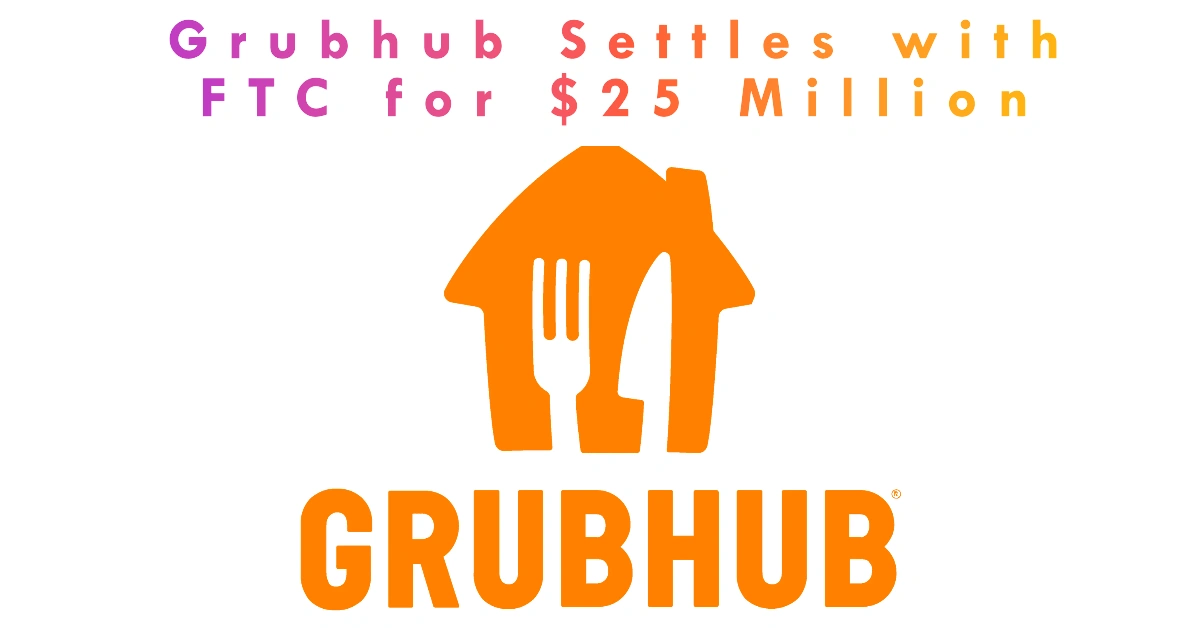
Grubhub will pay $25 million to settle a lawsuit brought by the Federal Trade Commission (FTC) and Illinois Attorney General Kwame Raoul. The lawsuit accused the food delivery company of engaging in deceptive and unfair practices that harmed diners, delivery workers, and small businesses. The settlement was announced on Tuesday.
According to the FTC’s complaint, Grubhub misled diners about delivery costs, blocked access to user accounts, deceived drivers about their earnings, and listed restaurants on its platform without their consent. FTC Chair Lina Khan stated, “Our investigation found that Grubhub tricked its customers, deceived its drivers, and unfairly damaged the reputation and revenues of restaurants that did not partner with Grubhub — all in order to drive scale and accelerate growth.”
Table of Contents
Unauthorized Listings and Hidden Fees
One of the key allegations against Grubhub was its practice of listing unaffiliated restaurants on its platform to boost growth. The FTC claimed that Grubhub included as many as 325,000 unaffiliated restaurants—more than half of all restaurants on the platform. Diners ordering from these restaurants often faced higher delivery fees, damaging the restaurants’ reputations.
Additionally, Grubhub was accused of adding hidden “junk fees” to orders. These fees, often labeled as “service fees” or “small order fees,” contradicted the company’s advertising, which promised a single, low-cost delivery charge.
Settlement Terms
Under the terms of the settlement, Grubhub has agreed to:
- Stop adding surprise fees such as “service fees” or “small order fees.”
- Cease listing unaffiliated restaurants on its platform.
- Provide clearer disclosures about driver earnings.
- Notify customers if their accounts are blocked.
- Simplify the process for canceling memberships.
The $25 million settlement will largely be used to refund affected consumers. Although the FTC initially sought a monetary judgment of $140 million, this amount was reduced due to Grubhub’s financial constraints. If the company is found to have misrepresented its financial status, the full judgment will become immediately due.
Impact on Delivery Workers and Small Businesses
The lawsuit highlighted the challenges faced by delivery workers and small businesses in the gig economy. Many app-based delivery workers rely on tips for the majority of their earnings. According to the FTC, Grubhub’s misleading practices further strained workers and damaged relationships with restaurants.
In July 2023, food delivery services including Grubhub, DoorDash, and Uber Eats filed a lawsuit against New York City to block a new law requiring minimum wage guarantees for delivery workers. The ongoing tension between food delivery platforms and policymakers underscores the complexities of regulating the gig economy.
Rising Costs Frustrate Diners
Consumers have grown increasingly frustrated with the rising costs associated with third-party food delivery services. Between 2022 and 2024, diners reported higher increases in total bills on apps like Grubhub compared to orders placed directly through restaurant websites, according to Technomic. These rising prices have prompted many Americans to seek ways to reduce extra fees when ordering food.
Verizon US Class Action Settlement 2024: Payouts, Eligibility, and How to Claim
Grubhub Responds to Allegations
In a statement to CNBC, a Grubhub spokesperson denied the allegations, saying, “At Grubhub, we’re committed to transparency so that every single day diners, restaurants and drivers can make well-informed choices to do business with us. While we categorically deny the allegations made by the FTC, many of which are wrong, misleading or no longer applicable to our business, we believe settling this matter is in the best interest of Grubhub and allows us to move forward.”
The company emphasized that its financial hardship influenced the reduced settlement amount. “We believe the FTC agreed to suspend a portion of the judgment because we negotiated with them in good faith and provided extensive details about our business and financial performance. Monetary judgments are not intended to cause irreparable harm or undue hardship for companies,” the spokesperson added.
This settlement highlights the growing scrutiny of third-party food delivery platforms by regulators and consumers alike. As competition intensifies and prices continue to rise, companies like Grubhub must balance profitability with ethical business practices and transparency to rebuild trust among diners, workers, and restaurant partners.
Leave a Reply